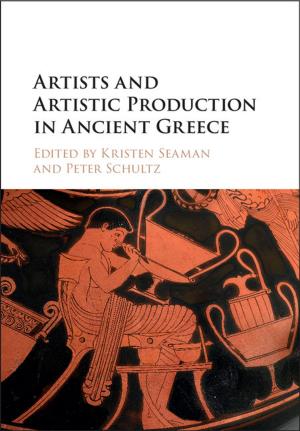Becoming a Poet in Anglo-Saxon England
Fiction & Literature, Literary Theory & Criticism, Poetry History & Criticism, British| Author: | Emily V. Thornbury | ISBN: | 9781139862400 |
| Publisher: | Cambridge University Press | Publication: | January 30, 2014 |
| Imprint: | Cambridge University Press | Language: | English |
| Author: | Emily V. Thornbury |
| ISBN: | 9781139862400 |
| Publisher: | Cambridge University Press |
| Publication: | January 30, 2014 |
| Imprint: | Cambridge University Press |
| Language: | English |
Combining historical, literary and linguistic evidence from Old English and Latin, Becoming a Poet in Anglo-Saxon England creates a new, more complete picture of who and what pre-Conquest English poets really were. It includes a study of Anglo-Saxon words for 'poet' and the first list of named poets in Anglo-Saxon England. Its survey of known poets identifies four social roles that poets often held - teachers, scribes, musicians and courtiers - and explores the kinds of poetry created by these individuals. The book also offers a new model for understanding the role of social groups in poets' experience: it argues that the presence or absence of a poetic community affected the work of Anglo-Saxon poets at all levels, from minute technical detail to the portrayal of character. This focus on poetic communities provides a new way to understand the intersection of history and literature in the Middle Ages.
Combining historical, literary and linguistic evidence from Old English and Latin, Becoming a Poet in Anglo-Saxon England creates a new, more complete picture of who and what pre-Conquest English poets really were. It includes a study of Anglo-Saxon words for 'poet' and the first list of named poets in Anglo-Saxon England. Its survey of known poets identifies four social roles that poets often held - teachers, scribes, musicians and courtiers - and explores the kinds of poetry created by these individuals. The book also offers a new model for understanding the role of social groups in poets' experience: it argues that the presence or absence of a poetic community affected the work of Anglo-Saxon poets at all levels, from minute technical detail to the portrayal of character. This focus on poetic communities provides a new way to understand the intersection of history and literature in the Middle Ages.















